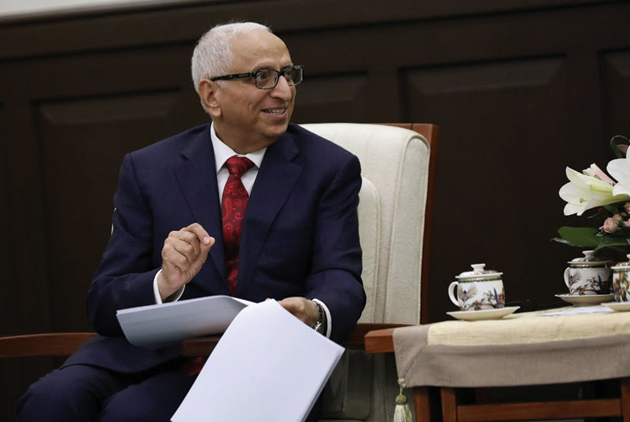SEMI: The U.S. should work with China as a competitor, not an enemy

Source:SEMI
As the former CEO of Global Foundries, the world’s third-largest semiconductor manufacturer, how does Ajit Manocha interpret the impact of the U.S. election and the Sino-American trade impasse on the semiconductor industry?
Views
SEMI: The U.S. should work with China as a competitor, not an enemy
By Elaine HuangFrom CommonWealth Magazine (vol. 711 )
In early April, Ajit Manocha, president and CEO of SEMI, a global semiconductor industry association with 2,400 members worldwide, took the rare step of writing a letter directly to the U.S. President Donald Trump.
In the letter, Manocha cautioned that export restrictions would damage the semiconductor and electronics supply chains and place the leading position of U.S. technology at risk.
And how do Taiwanese business executives view the direction of the industry with the incoming Biden administration? The following are excerpts of interviews with two key industry players.
Ajit Manocha, CEO of SEMI: The U.S. should work with China as a competitor, not an enemy.
I believe decoupling is not the answer to the current geopolitical tensions between the U.S. and China. The promise of new technologies is truly astounding, and the incredible complexity of these technologies is making the global electronics manufacturing and design supply chain more interdependent.
Fracturing the global supply chain not only threatens innovation, the unintended consequences could harm the leadership positions of U.S. semiconductor companies as the supply chain realigns.
The U.S. should work with China as a competitor, not an enemy.
Indications are that the new administration will continue to maintain pressure on China via the semiconductor industry but with a stronger focus on international collaboration. We do anticipate the administration being more open to working with SEMI and our Global Advocacy team as we bring the collective voice of our member companies to express concerns on regulations that impact our global trade principles.
Looking at the current business landscape in the semiconductor manufacturing and design supply chain, in many types of semiconductor manufacturing equipment (SME), U.S. suppliers are market leaders and account for roughly 50% of global SME market share.
However, no one should underestimate China’s commitment and determination to become self-sufficient in semiconductor manufacturing. The impact of the types of export restrictions we are seeing today would have been devastating for China a decade ago, but the Chinese semiconductor industry has sufficiently advanced over the past ten years to remain competitive.
Taiwan has played a central role in the global semiconductor ecosystem for multiple decades and was the top semiconductor equipment spender for 7 of the last 10 years. This continued investment by semiconductor manufacturing companies, coupled with the inclusion of semiconductors as the top priority in the six core strategic industries of the Taiwan government, has Taiwan well positioned to maintain its world leadership position in front-end and back-end semiconductor manufacturing.
I can personally vouch that the leading semiconductor industry executives in Taiwan have the vision and drive to build on Taiwan’s strategic importance to the industry worldwide.
Within the industry, it is largely recognized that talent development is a critical concern that could limit future growth, and SEMI has worked closely with industry and government leaders in Taiwan to address this issue head on with our Workforce Development programs.
This is just one example of the local industry’s forward-thinking approach. Taiwan is also heavily involved in our technology standards as well as our Smart Initiatives that facilitate innovation and foster collaboration across the global supply chain around key strategic areas including Smart Mobility, Smart MedTech, Smart Manufacturing and Smart Data.
Have you read?
♦ The Power of Taiwan’s Silicon Shield: Will It Hold in Biden Era?
♦ Australian Representative Gary Cowan: Taiwan is Recognized as More Important than Before
♦ Richard Bush: Biden's Taiwan Policy would be More Predictable
Uploaded by Penny Chiang






